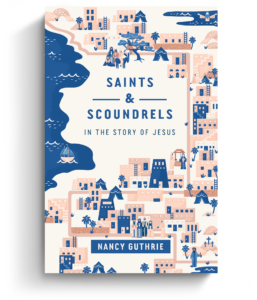Kent Hughes examines John 18:1–11, focusing on the events leading to Jesus’ arrest. Hughes highlights Jesus’ authority, control over the situation, and willingness to submit to the Father’s plan. The sermon underscores the significance of Jesus’ obedience and sacrifice for humanity’s salvation.
The following unedited transcript is provided by Beluga AI.
We invite you to open your Bible to John, the 18th chapter, the Gospel of John, chapter 18.
1 When Jesus had spoken these words, he went out with his disciples across the brook Kidron, where there was a garden, which he and his disciples entered. 2 Now Judas, who betrayed him, also knew the place, for Jesus often met there with his disciples. 3 So Judas, having procured a band of soldiers and some officers from the chief priests and the Pharisees, went there with lanterns and torches and weapons. 4 Then Jesus, knowing all that would happen to him, came forward and said to them, “Whom do you seek?” 5 They answered him, “Jesus of Nazareth.” Jesus said to them, “I am he.” Judas, who betrayed him, was standing with them. 6 When Jesus said to them, “I am he,” they drew back and fell to the ground. 7 So he asked them again, “Whom do you seek?” And they said, “Jesus of Nazareth.” 8 Jesus answered, “I told you that I am he. So, if you seek me, let these men go.” 9 This was to fulfill the word that he had spoken: “Of those whom you gave me I have lost not one.” (John 18:1-9, ESV)
11 So Jesus said to Peter, “Put your sword into its sheath; shall I not drink the cup that the Father has given me?” (John 18:11, ESV)
And so now, the ministry of the Upper Room is over. The Passover table bears the cold remains of the Paschal Feast. Judas is gone.
Departed into the midnight of his life. The high priestly prayer is over. And with the final echoes of the hymns still floating on the midnight air, our Lord and His disciples have departed from the Upper Room for Gethsemane and the cross. The details of which begin in the 18th chapter of the Gospel of John and continue on into the 19th.
And what we have in these chapters is of the utmost importance because these chapters, their truth, how Christ conducted Himself in the final part of His life has bearing on the reality of the promises that are made in the earlier part of the Gospel of John. They are of the greatest importance.
And so when we think about the promises of eternal life, the promise of the Lord sending the other Comforter to be with His people, the promise of His return, that He is preparing a place for them, that He is the God of judgment, His doctrines of grace and mercy, all of these hinge upon what happens in the 18th and 19th chapters of the book of John. And so how Christ conducted Himself not only in His life, but specifically in the chapters of the Gospel of John.
Chapters before us are of the greatest importance because they either validate or invalidate His life and what He has to say. And as we know, Christ’s life has suffered a great many different interpretations, especially the final verses that deal with His life, the final days of His life. For example, in 1906, Albert Schweitzer wrote his landmark book, The Quest of the Historical Jesus. And in that book, after Schweitzer reviewed all the historical views of the life of Christ, he came to his own opinion.
And his own opinion was this, that Jesus was a mere man, dominated by the mistaken messianic hope that He was going to instill the kingdom. And when he saw that it was not going to happen, then he took a great chance in sacrificing himself that it might come into existence. It was his mistaken hope. And so one of the most famous quotations from Schweitzer, perhaps the most famous, reads like this from The Quest of the Historical Jesus. There is silence all around. The Baptist appears and cries, repent, for the kingdom of heaven is at hand.
Soon after that comes Jesus, and in the knowledge that He is the coming Son of Man, lays hold of the wheel of the world to set it moving on that last revolution, which is to bring all ordinary history to a close. It refuses to turn, and He throws Himself upon it. Then it does turn and crushes Him. Instead of bringing in the eschatological conditions, He has destroyed them.
The wheel rolls onward, and the mangled body of the one immeasurably great man, who was strong enough to think of himself as the spiritual ruler of mankind and to bend history to his purpose, is hanging upon it still. That is his victory and his reign. As he died in confusion and despair and rejection, he cried, “My God, my God, why hast thou forsaken me?”
And so for Albert Schweitzer and tragically thousands that have fallen him, Jesus was the subject or the victim of his own delusions and he was caught upon the wheel of history like a rag doll and ground to death. And Schweitzer says that the great contribution of Jesus Christ, if you can imagine this, is that Jesus did away with the idea of a messianic kingdom, that he laid that to rest for all time. That is Jesus’ great contribution. And his view of Jesus’ life is depressing.
And much of modern theology has been written to try to escape the conclusions that this great liberal theologian came to. But the thing that’s encouraging about our text this morning is that our text, what John has to say, does not agree with Albert Schweitzer at all. And I think it’s very profitable for us to read John instead of Albert. John portrays Christ here this morning in the midst of what looks like the world is falling in to be in absolute control of everything. When it looks the worst, we see the Lordship, sovereignty of Christ.
And so, as we look at His arrest this morning, we’ll see His Lordship demonstrated in the symbolism with which Christ consciously surrounds Himself. We’ll see His Lordship affirmed as Christ goes through the agony and His control there. And we’ll also see His Lordship confirmed as He deals with His enemies as they come to confront Him and arrest Him. And so, this morning, as we go through the arrest of Jesus, it’s going to be a message intended to be comfort to our hearts. That’s what John intended.
And so, let us open our hearts and be ready to receive the message from Jesus. Now, the first thing we see about our Lord being in control is His choice of the place. While our text doesn’t say it, all the rest of the Gospels say that He goes to Gethsemane. And Gethsemane means the oil press. And the Lord has chosen this because as He now comes to this terminal time in His life, He is going to be pressed down by the pressures of the cup that He is to drink.
And finally, of course, He’s going to pour out His life. I think it’s informative also that John does not call this Gethsemane, but he calls it the Garden and none of the other Gospels do. And I believe that John in his theological purpose for what he’s writing wants us to see that this is a second Garden, that there was the first Adam in the first Garden and now the second Adam in the Garden of Gethsemane. And whereas in the first Garden of Eden, Adam sinned, in the second Garden of Gethsemane, Christ was sanctified.
In the Garden of Eden, Adam fell. In the second Garden, Christ triumphed. In the Garden of Eden, Adam fell. Adam hid himself from God. In the second garden, Christ revealed Himself to the men. In Eden, the sword came out. And in Gethsemane, it was put away. And so the symbolism that we have in our passage this morning is not accidental. It’s not incidental. It’s part of our sovereign God being in control consciously of even the symbolism that surrounds His final hours upon this earth.
And in accord with this conscious symbolism, we find another hint in the opening verse of John. If you look at it, you’ll see the phrase that says that Jesus went forth with His disciples over the ravine of the Kidron. And there He further enhanced His symbolism. And this is why. There was a drain that came from the altar of the temple down into the Kidron Valley which drained off the blood of the sacrifices. It was Passover. And on any given Passover during this time in the Jews’ history, some 2,000 lambs were offered upon the altar.
And so that drain was blood red and it drained down into the ravine of the Kidron. And so when our Lord walked across the Kidron, it was scarlet with the blood of sacrifice as He goes on to Gethsemane, the olive press, the garden, to offer up as a second Adam His life. And so we see in the symbolism that our Lord was in control. He was not some rag doll caught on the gears of history. And then we see it in His agony. Now, John doesn’t tell us about the agony.
We have to insert that in the opening verses. But the other Gospels tell us plenty about his agony. And from what we understand, it was an unspeakable horror that overtook our Lord. I don’t think that it can be overstated, the darkness and the horror that came over his soul. Matthew records, “And he began to be grieved and distressed. Then he said to them, ‘My soul is deeply distressed, even to the point of death.'” As he poured out his heart to his disciples who were around.
And then Mark in his 14th chapter, the tense of the verbs indicates that our Lord cast himself down to the ground repeatedly. It was as if he was in such agony that he would cast himself down to the ground, and then he would get up in his pain and cast himself back down in prayer. And Mark continues on and says, “And he began to pray that if it were possible, the hour might pass from him.” No one knows the sorrows that our Lord knew.
And then Luke records, Luke the physician says, and being in agony, he was praying very fervently and his sweat became like drops of blood falling down upon the ground. So great was his agony as a spiritual pressure and burden of the world’s sins. Spread their realization over him that somehow he broke out in a bloody sweat. Is the grim horror of all of this overtook him.
It was these and similar verses that led Celsus, the heretic of the second century and many of his followers, those down through history to say this is prima facie evidence that. Remember, Jesus Christ was not God, because many men have faced deaths just as terrible as Jesus did, either at the stake or in battle, but none of them, or many of them, did not enter into the agony and distress that Jesus did. I think they would like to see John Wayne in the Garden of Eden. Mr. Wayne, the Romans are coming. Yeah, kid?
You take the women and children, I’ll hold them off here and meet you at the Jordan. In reality, what we have is Christ’s horror and Christ’s agony of what was to overtake Him is indicative, indeed, of His divinity and His control, because only omniscience could know what He was going to have to encounter as He took that cup to Himself.
Words fail for the pure, sinless Lord Jesus to take the world’s sins, the cup that if we drank for ourselves, for our own sins, would take all eternity to drink. He took upon Himself in those dark hours upon the cross. That is why we see His divinity, and we see that He is in control, because He knows what He’s going to do, and His resolve to endure the agony, even at such a great price, demonstrates His control of the situation.
John picks up the narrative after Jesus’ formal resolve to drink the cup, and we have a highly dramatic, the deepest drama in verses 2 and 3. Read with me.
2 Now Judas, who betrayed him, also knew the place, for Jesus often met there with his disciples. 3 So Judas, having procured a band of soldiers and some officers from the chief priests and the Pharisees, went there with lanterns and torches and weapons. (John 18:2-3, ESV)
It was the middle of the night and the moon was full. It was Passover.
And if the sky was clear, and we would surmise that it was because verse 18 tells us it was a cold night, then the trees in Gethsemane cast eerie shadows about the encampment. And as our Lord was there and looked off across Gethsemane and the Kidron to the waning lights of Jerusalem late in the night, Judas was making his rendezvous with the Roman cohort, some 600 armed Roman soldiers and guards from the temple. The Romans were, of course, armed variously with their short swords and the guards from the temple with their clubs.
The irony of it is that now, in Jesus’ death, we find Jews and Gentiles together, united. They had chosen their place very carefully because they didn’t want to risk a riot or interference from others, and so this was an agreed-upon place with Judas.
And for our Lord, or at least for mortal eyes, as one looked out across the blood-stained Kidron to Jerusalem and saw that line of torches come down out of the city from the walls dark and high, the holy city, and across the blood-stained Kidron and up the slopes of Olivet into Gethsemane, it must have been a terrifying sight. I think there’s no doubt about it that Judas was in the lead because, as the other Gospels reveal in a few short minutes, he’s going to be in the lead.
To give him a kiss, one that is described literally as a fervid kiss, and he’s going to betray his master. And the point is this: As we look at our Lord’s life, it indeed appears that life has fallen in, that it’s out of control, that He is caught on the wheel of history inexorably to be ground into oblivion. H.G. Wells once said, remarking on this view of history, “The world is like a great stage production produced and managed by God.”
He said, “The curtain rises, and we see the stage, and it’s set, and it’s beautiful, and the characters are all in place, the scenery is fine, but as the play begins, the leading man steps on the leading lady’s dress, and she in turn bumps into a table, which in turn knocks over a lamp, which in turn hits something else, which goes into the wall. The walls fall in on the play, and meanwhile, the Lord, the producer, is running around behind the scenes, shouting orders, pulling strings, trying to bring order out of chaos.”
And Wells says, “Poor God, He is very little, limited God.” That is not the picture that we have here. And now, as our Lord comes to face His antagonists in one of the darkest parts of His life, we’re going to see that He is indeed in control. Look at verses 4 and following:
4 Then Jesus, knowing all that would happen to him, came forward and said to them, “Whom do you seek?” 5 They answered him, “Jesus of Nazareth.” Jesus said to them, “I am he.” Judas, who betrayed him, was standing with them. 6 When Jesus said to them, “I am he,” they drew back and fell to the ground. (John 18:4-6, ESV)
The picture that John gives of our Lord is that our Lord, instead of waiting, goes forth to meet them and that He questions them as to whom they’re looking for. And they respond that it’s Jesus of Nazarene. And that when He says, I am, or I am He, that they fell to the ground. Now I can’t agree with those who do not think that there’s a miracle there. I believe that there’s a miracle.
I believe that that was John’s theological intent of recording this. And it can be rationalized away, saying, well, we know the great moral forces some people possess. Or that Jesus surprised them. But I don’t think that pertains here because, first of all, Jesus spoke to them, they returned it, and then when He said, “I am He,” in Greek I’m sure, but nevertheless the divine predicate, “I am that I am,” from Exodus 3, they fell to the ground.
And what we see in Jesus’ life before His death is His final exercise of His power that calmed the seas and healed the sick. Caught on the wheel of history? I don’t think so. And I don’t think John thinks so. They didn’t arrest Jesus, He arrested them. The gracious warning was not to go over their heads. And I wonder how it was for Judas as he struggled back to his feet. What was running through Judas’ mind at this time? Verse 4 tells us that Jesus went forth, that is, Jesus took the initiative.
Back in the 10th chapter, verse 18, He speaks prophetically of His death and He says,
18 No one takes it from me, but I lay it down of my own accord. I have authority to lay it down, and I have authority to take it up again. This charge I have received from my Father.” (John 10:18, ESV)
And the fact is, He could have called 10,000 angels, each 60 feet high with laser beams. It’s no problem for our Lord. He was in control.
The Lordship is also seen in His gracious provision for His disciples. Look at verse seven and following again.
7 So he asked them again, “Whom do you seek?” And they said, “Jesus of Nazareth.” 8 Jesus answered, “I told you that I am he. So, if you seek me, let these men go.” 9 This was to fulfill the word that he had spoken: “Of those whom you gave me I have lost not one.” (John 18:7-9, ESV)
There can be little doubt that when those soldiers came, they came to get the whole group of disciples. In fact, later, Mark records that one of them had to flee away naked. They came to get the whole bunch of them.
And Luther believed that this was the greatest miracle of all: His protection of his own. And it’s beautiful to see the Lord’s method. Twice he asked them who they seek, and they say, “Jesus, the Nazarene.” Thus, psychologically narrowing their focus to Jesus. And then he punctuates it by casting them to the ground, so that when he suggests that they let them go away, they think it’s a very reasonable request. And then you add to this Peter’s attack, and his dealing with that attack.
And we do not have some impotent fee profit cast upon the wheels of life. We have a Lord who’s in control. See verses 10 and 11. Simon Peter, therefore, having a sword, drew it, and struck the high priest’s slave, and cut off his right ear. And the slave’s name was Malchus. Jesus therefore said to Peter, “Put the sword into the sheath.” Now many believe that it was at this time that, and this event was precipitated by Judah’s fervid kiss of Jesus.
I think that’s probably the case, and I think what happened is when Peter saw that kiss, he couldn’t stand it any longer. So out came his short sword, and down it came on Malchus’ head. Glancing off his helmet, caught one of his ears, and there stood Malchus with a hearing problem. And now we’ve got John Wayne, 600 to 1. It’s just you and me, Jesus. The rest of you guys run for it. We’ll meet you at the Jordan. What a way to go.
And there’s a sense in which our primal instincts, we well up and say, Good, I’m glad somebody got one lick in for Jesus. But in a sense, in a very real sense, it was a very tragic move that could have brought the worst. Calvin said, No thanks to him that Christ was not kept from death and that his name was not a perpetual disgrace. Peter had a lot to learn, and we know that Peter learned it.
But imagine the pounding, driving tension as Malchus holds his hand up to his left ear, and that steaming blood is streaming out, and a hundred swords ring from their scabbard in a gruesome symphony. What’s going to happen? And then our Lord says simply, “Stop. No more of this.” He reaches out his hand and touches that ear, and whether the ear came back off the ground or another one grew, he bore testimony to who he was. Our Lord was in control in the darkest hour of his life.
And look at his majestic summary statement in the last part of 11: “The cup which the Father has given me, shall I not drink it?” The cup was the cross. The cup was what you and I should have taken for ourselves and would have to bear had it not been for Christ. And in those dark hours, as on the cross when the sun was hidden, our Lord drank that cup to the dredges. Death and the curse were in that cup. Oh, Christ, it was full for thee, but thou hast drained the last dark dregs.
‘Tis empty now for me. And so our Lord had wrestled in the garden.
39 And going a little farther he fell on his face and prayed, saying, “My Father, if it be possible, let this cup pass from me; nevertheless, not as I will, but as you will.” (Matthew 26:39, ESV)
It was his resolve and his will that caused him to drink it. Christ was in control. And I think, in the light of John’s representation of our Lord Jesus in the last hours of his life, Schweitzer’s words are hollow and empty. The wheel rolls onward, and the mangled body is hanging upon it still.
That is his victory and his reign. Empty, hollow words. John doesn’t think so, and neither do we. And the very surroundings demonstrate that He was in control. Gethsemane, the press where His life came out, the garden for the second Adam, the blood-stained chedron symbolic of sacrifice, His resolve in the agony, His confrontation with His enemies, His healing with Malchus, the Lord Jesus Christ was in control. And the point is that Christ was in control when life was falling in when things looked the worst. That is the whole point. How does that relate to us?
We’ll never go through a Gethsemane like Christ, but we all have our Gethsemanes. Down shadowy lanes, across strange streams, bridged over by broken dreams, behind the misty caps of years, beyond the great salt found of tears, the garden lies. Strive as you may. You cannot miss it in your way. All paths that have been or shall be pass somewhere through Gethsemane. And that they do. We will all have times in our life of ultimate stress when we will wonder if we can endure it.
We will all have times in our lives when it looks like we’re caught on the wheel of history. We’re in the flow of human history and humanity and life. No one is helping us. It will look like that in our lives. But the testimony is that with our firstborn and first risen from the dead, that in His darkest hour, He was in control, and He’s in control of His children’s darkest hours too. Our sovereign God. And just as Christ controlled His own destiny, ultimately He controls ours.
When all the facts point to the fact that it looks like there is a very little obsolete God, it is just the opposite. That’s what Joseph found. Remember how he was sold into slavery, and then in slavery he was rose, and then he was demoted because of his own morals and ethics, and then he was cast into prison, and he rose in prison, and he was disappointed by those around him for years. And finally God used him to deliver His people. But I wonder what he saw in all those years.
An unbelieving eye can see in retrospect, “Oh, that was God preparing him,” but what did he see? But God was in control, and so it was with Moses, and so it is with Paul, and so it is with us. God is in control even in the darkest hour, and while men mean it for evil, and while we’re caught in human tragedy, God means it for good. All those who journey, soon or late, must pass within the garden’s gate, must kneel alone in darkness there, and battle with some fierce despair.
God pity those who cannot say, “Not mine, but Thine,” who only pray, “Let this cup pass,” and cannot see the purpose in Gethsemane. There is purpose. And so, Gethsemane was not a tragedy. Christ was not caught unawares, and I would say this, that in ultimately all of life, because of what we believe about our benevolent, good, and loving God, while we go through tragedy, and those words accurately describe what we’re going through, there is ultimately no Christian tragedy. Life may be dark at times.
Tragedy may come; at times, the whole world may seem to be falling apart; the wheel may appear to crush us, but there is victory in the Lord Jesus. And in a very large group of people like this, there are some now where you look at life, you feel like you’re just a twig in an onrushing stream. But the testimony and example of our Lord Jesus is that He is in control.
And so we can say with Paul, and we know that God causes all things to work together for good to those who love God, to those who are called according to His purpose, even in Gethsemane.
28 And we know that for those who love God all things work together for good, for those who are called according to his purpose. (Romans 8:28, ESV)
Amen. Let us pray. Lord Jesus, we left many things unsaid. We cannot plumb the depths of the agony. We have missed much of the symbolism, but in this we see your hand in control of life in the most difficult, darkest time of your life.
And we thank you because we are united with you, because we share the divine nature, because we’ve been partakers of the divine nature, because all the fullness of deity dwelled in Christ in bodily form, and we are indwelled, that is, we have been made full and complete, that you care for us this way. And so our hearts lift up in song, praising you for your care and your deliverance and power and optimism. In Jesus’ Name, Amen.
Consider Jesus’s Generous Grace with This Free Ebook
 John the Baptist. Judas. Zaccheus. Caiaphas. We could quickly label these individuals as heroes or villains—but each of their experiences with Jesus provides a unique and unexpected glimpse of his generous grace. What might we have overlooked in their familiar stories?
John the Baptist. Judas. Zaccheus. Caiaphas. We could quickly label these individuals as heroes or villains—but each of their experiences with Jesus provides a unique and unexpected glimpse of his generous grace. What might we have overlooked in their familiar stories?
In Saints and Scoundrels in the Story of Jesus, seasoned bible teacher Nancy Guthrie provides readers with a fresh look at some of the most well-known personalities described in the Gospels.
We’re delighted to offer this ebook to you for FREE today. Follow the link for instant access to a resource that reminds us of the only hope for supposed saints and scandalous scoundrels—the mercy of God


















